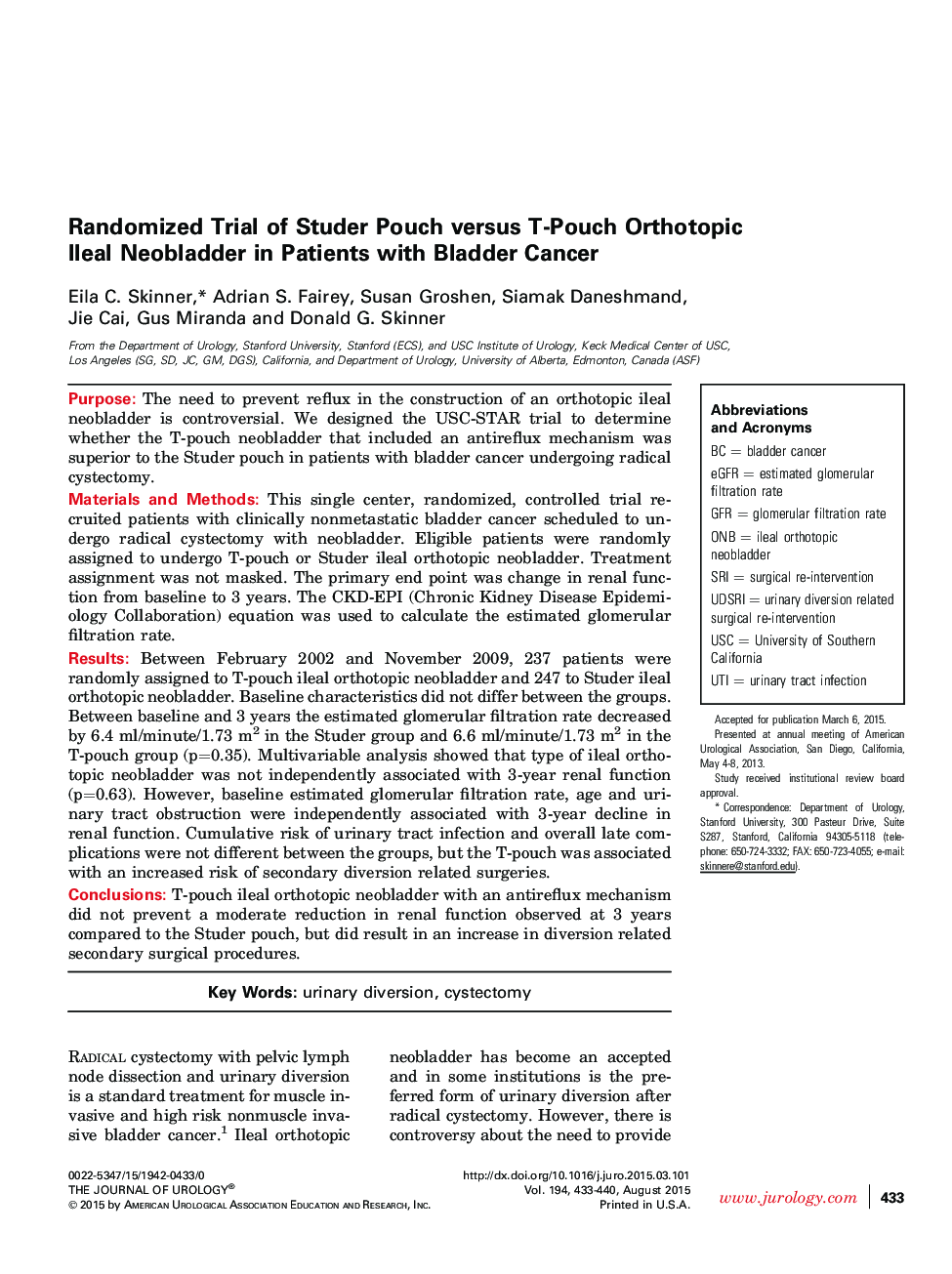| Article ID | Journal | Published Year | Pages | File Type |
|---|---|---|---|---|
| 3860763 | The Journal of Urology | 2015 | 8 Pages |
PurposeThe need to prevent reflux in the construction of an orthotopic ileal neobladder is controversial. We designed the USC-STAR trial to determine whether the T-pouch neobladder that included an antireflux mechanism was superior to the Studer pouch in patients with bladder cancer undergoing radical cystectomy.Materials and MethodsThis single center, randomized, controlled trial recruited patients with clinically nonmetastatic bladder cancer scheduled to undergo radical cystectomy with neobladder. Eligible patients were randomly assigned to undergo T-pouch or Studer ileal orthotopic neobladder. Treatment assignment was not masked. The primary end point was change in renal function from baseline to 3 years. The CKD-EPI (Chronic Kidney Disease Epidemiology Collaboration) equation was used to calculate the estimated glomerular filtration rate.ResultsBetween February 2002 and November 2009, 237 patients were randomly assigned to T-pouch ileal orthotopic neobladder and 247 to Studer ileal orthotopic neobladder. Baseline characteristics did not differ between the groups. Between baseline and 3 years the estimated glomerular filtration rate decreased by 6.4 ml/minute/1.73 m2 in the Studer group and 6.6 ml/minute/1.73 m2 in the T-pouch group (p=0.35). Multivariable analysis showed that type of ileal orthotopic neobladder was not independently associated with 3-year renal function (p=0.63). However, baseline estimated glomerular filtration rate, age and urinary tract obstruction were independently associated with 3-year decline in renal function. Cumulative risk of urinary tract infection and overall late complications were not different between the groups, but the T-pouch was associated with an increased risk of secondary diversion related surgeries.ConclusionsT-pouch ileal orthotopic neobladder with an antireflux mechanism did not prevent a moderate reduction in renal function observed at 3 years compared to the Studer pouch, but did result in an increase in diversion related secondary surgical procedures.
